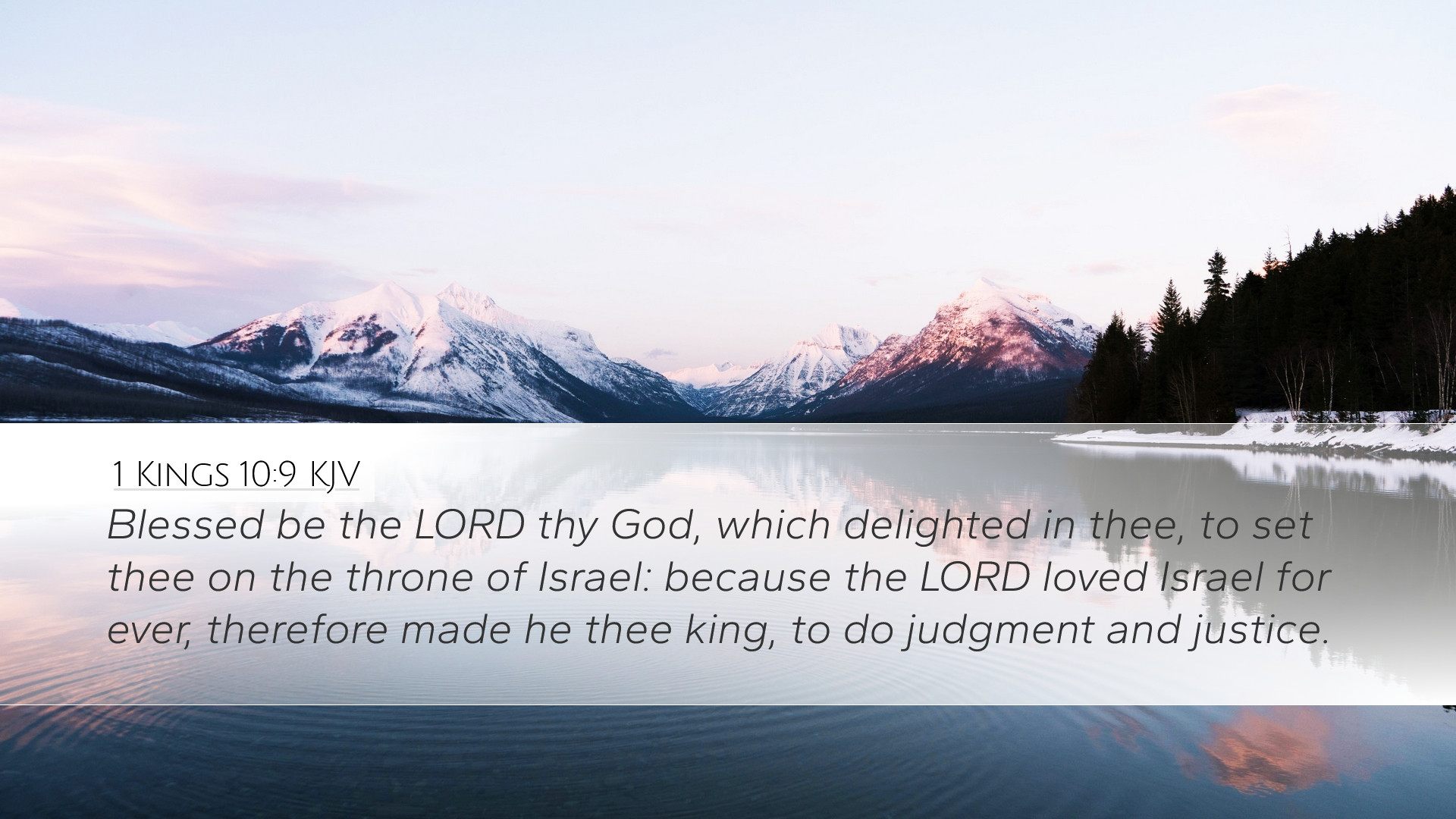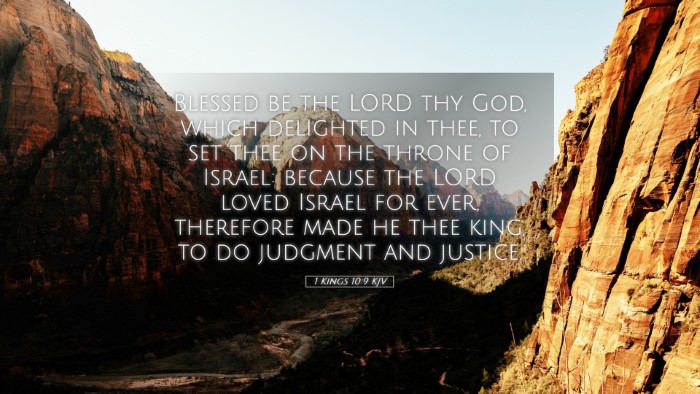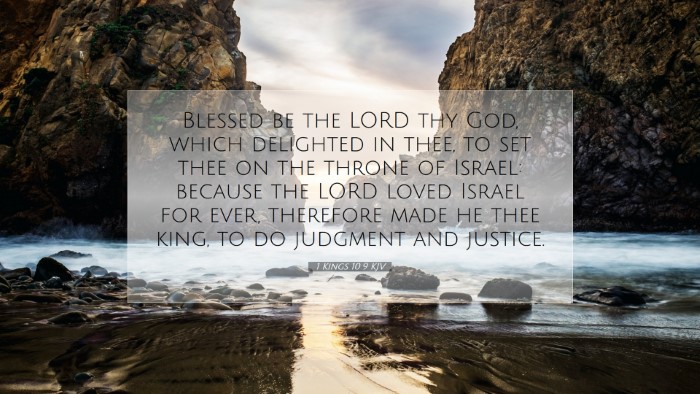Commentary on 1 Kings 10:9
Verse: "Blessed be the Lord thy God, which delighted in thee, to set thee on the throne of Israel: because the Lord loved Israel for ever, therefore made he thee king, to do judgment and justice."
This verse is spoken by the Queen of Sheba as she acknowledges the wisdom and greatness of King Solomon. It serves as a pivotal point demonstrating the acknowledgment of God's providence and blessing upon Solomon's reign.
Context of the Passage
The visit of the Queen of Sheba occurs during a time of prosperity and peace in Israel. Solomon had built the temple, established trade relations, and garnered fame for his wisdom. The presence of a foreign queen signifies recognition beyond the borders of Israel. This inquiry and admiration fosters the theme of divine favor bestowed upon Solomon, which resonates throughout the Biblical narrative.
Theological Insights
-
Divine Favor: The phrase "Blessed be the Lord thy God" emphasizes acknowledgment of God's sovereign role in Solomon's ascent to the throne. The Queen recognizes that it is not merely Solomon's wisdom but divine favor that enables his reign.
-
The Purpose of Leadership: Solomon's appointment is underscored by the purpose "to do judgment and justice." Effective leadership, according to the Scriptures, is tied to righteousness and moral integrity. Both the blessing and purpose are evident, linking God’s enduring love for Israel to the responsibility placed upon Solomon.
-
God’s Love for Israel: The statement, "the Lord loved Israel for ever," reflects the covenant relationship established by God with His people. His eternal love signifies commitment, thus implying that the appointment of a king is part of His redemptive plan.
Commentary Insights
Matthew Henry
Matthew Henry underscores the providence of God in the affairs of nations' leadership. He notes that Solomon's reign is marked by the fulfillment of God's promises to Israel, highlighting that the blessing upon Solomon signifies a broader narrative in which God governs both His people and their leaders with an intention towards justice.
Albert Barnes
Albert Barnes elaborates on the Queen of Sheba’s profound declaration of faith. He explains that her visit is not only diplomatic but also serves as a theological acknowledgment of God's greatness. Barnes asserts that the wisdom manifested in Solomon's governance reflects the inherent truth of God's nature—just and righteous. The king’s success is tied to God's divine oversight and the importance of living up to the standards established by the Almighty.
Adam Clarke
Adam Clarke provides insight into the cultural implications of this verse. He points out that the acknowledgment from the Queen reflects not only admiration but a prophetic kind of revelation, indicating the universal recognition of God's sovereignty. He emphasizes that the reign of Solomon serves as a type of Christ, where justice and righteousness are foundational, drawing parallels to the ultimate authority of Christ as the King of Kings.
Application for Leadership
For pastors, students, and theologians, this verse serves as both a profound reminder and a practical guideline for leadership. The following applications can be derived:
-
Dependence on Divine Wisdom: Just as Solomon sought wisdom from God, leaders today should recognize their need for divine guidance in decision-making processes.
-
Commitment to Righteousness: The expectation of doing "judgment and justice" calls contemporary leaders to embody righteousness, upholding ethical standards that reflect God’s character.
-
Recognition of God’s Sovereignty: Leaders should cultivate an understanding that their authority derives from God’s appointment, leading them to humility and servant leadership.
Conclusion
1 Kings 10:9 encapsulates the profound truth that leadership is not merely an earthly endeavor but is fundamentally connected to the divine purpose and plan. By examining this verse through the lenses provided by Matthew Henry, Albert Barnes, and Adam Clarke, it becomes clear that the acknowledgment of God's sovereignty serves as a catalyst for righteous governance. As leaders today reflect on this passage, they are invited to embrace and embody the justice and wisdom characteristic of God's eternal love.


